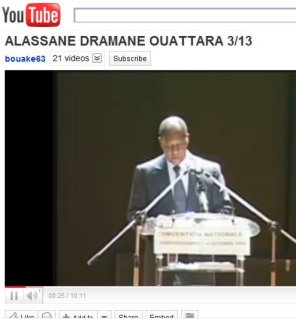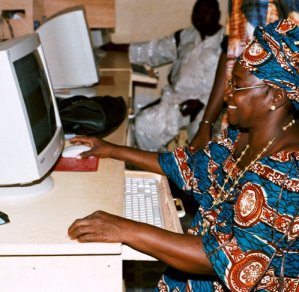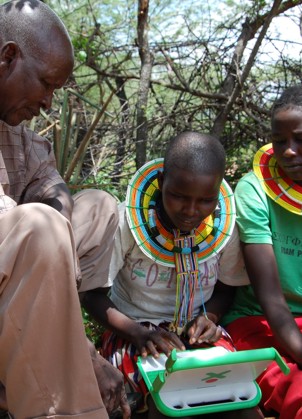|
Africa Media | Technology | Society Africa's social media revolution
In the mid-1990s, as the use of mobile phones spread in much of the developed world, few thought of Africa as a potential market. Now, with more than 400 million subscribers, its market is larger than North America's and is growing faster than in any other region. A similar story now seems again to be unfolding as Africans use their cell phones to connect to "social media" - Internet services like Facebook, Twitter and YouTube - that allow people to interact with each other directly. In the process, they are joining what may be the next global trend: a shift to mobile Internet use, with social media as its main driver. According to Mary Meeker, an influential Internet analyst, mobile Internet and social media are the fastest growing areas of the technology industry worldwide, and she predicts that wireless telephones use will soon overtake computers as the primary Internet device. Africa is pushing both developments. Studies suggest that when Africans go online - predominantly with their mobile phones - they spend much of their time on social media sites. In recent months, Facebook - the major social media platform worldwide and currently the most visited website in most of Africa - has seen a massive growth on the continent. The number of Facebook users now stands at over 17 million, up from just 10 million in 2009. More than 15 percent of people online in Africa are currently using the platform, compare to 11 percent in Asia. Two other social networking websites, Twitter and YouTub
African sports, music and film stars, political leaders and companies have joined the global conversation. The Facebook fan base of Ivorian football star and UN goodwill ambassador Didier Drogba is approaching 1 million. Zambian author and economist Dambisa Moyo has more than 26,000 followers on Twitter. Companies such as Kenya Airways and media organisations in South Africa are using various social media platforms to interact better with customers and readers. During recent elections in Côte d'Ivoire, candidates not only toured the cities and villages; they also moved the contest online, posting campaign updates on Twitter and Facebook. Constraints and opportunities Africa's embrace of social media is even more striking given the low number of Africans using the Internet and the many hurdles they face trying to go online. The continent's 100 million Internet users make Africa the region in the world with the lowest penetration rate and a tiny minority of the 2 billion people online around the world. Among the many reasons for this poor showing are the scarcity and prohibitive costs of high speed internet connections and the limited number of personal computers in use. But these challenges simultaneously contribute to the growth in the use of mobile Internet, which in recent years has been the highest in the world. "Triple-digit growth rates are routine across the continent," notes Jon von Tetzchner, co-founder of Opera, the world's most popular mobile phone Internet browser. "The widespread availability of mobile phones means that the mobile web can reach tens of millions more than the wired web." As wi
"Seismic shift" coming Erik Hersman, a prominent African social media blogger and entrepreneur is equally enthusiastic. In an e-mail to 'Africa Renewal', he notes that "with mobile phone penetration already high across the continent, and as we get to critical mass with Internet usage in some of Africa's leading countries (Kenya, South Africa, Ghana, Nigeria, Egypt) … a seismic shift will happen with services, products and information." These growth rates are persuading major companies to invest in reaching Africa's expanding pool of Internet users. Facebook, after launching versions in some of the major African languages, including Swahili, Hausa and Zulu in May 2010, has announced it will offer free access to its platform to mobile phone users in many parts of Africa. In October 2010 Google started testing a new service for Swahili speakers in East and Central Africa. Tentatively called "Baraza" ("meeting place" in Swahili), it aims at allowing people to interact and share knowledge by asking and answering questions, many of them of only very local or regional interest. Africans are also cashing in on the local market. In South Africa, MXit, a free instant messaging application with an estimated 7 million users, is the most popular local social networking service. From Accra and Abidjan to Lusaka and Nairobi, African programmers are designing and launching new home-grown platforms and tools that will keep the African online conversation going and growing in the years ahead. By André-Michel Essoungou © afrol News / Africa Renewal
Current afrol News Top Stories
|
front page
| news
| countries
| archive
| currencies
| news alerts login
| about afrol News
| contact
| advertise
| español
©
afrol News.
Reproducing or buying afrol News' articles.
You can contact us at mail@afrol.com










